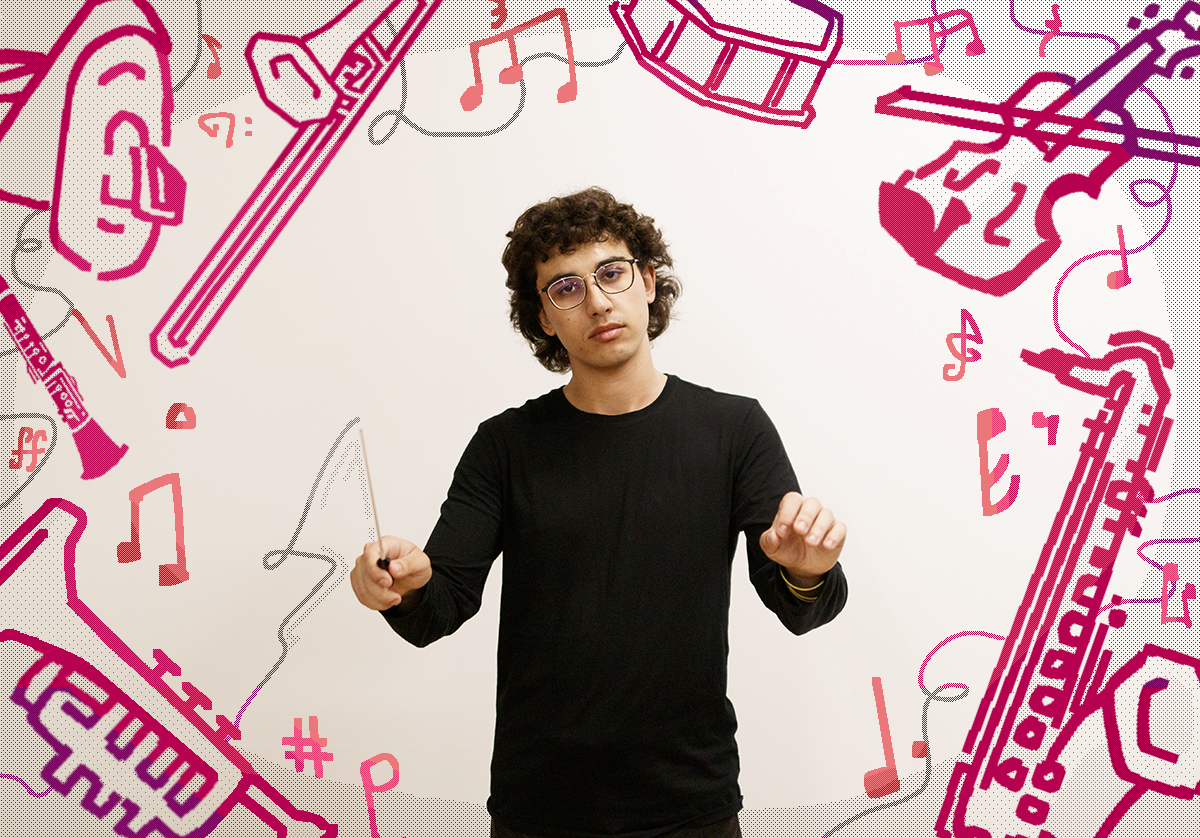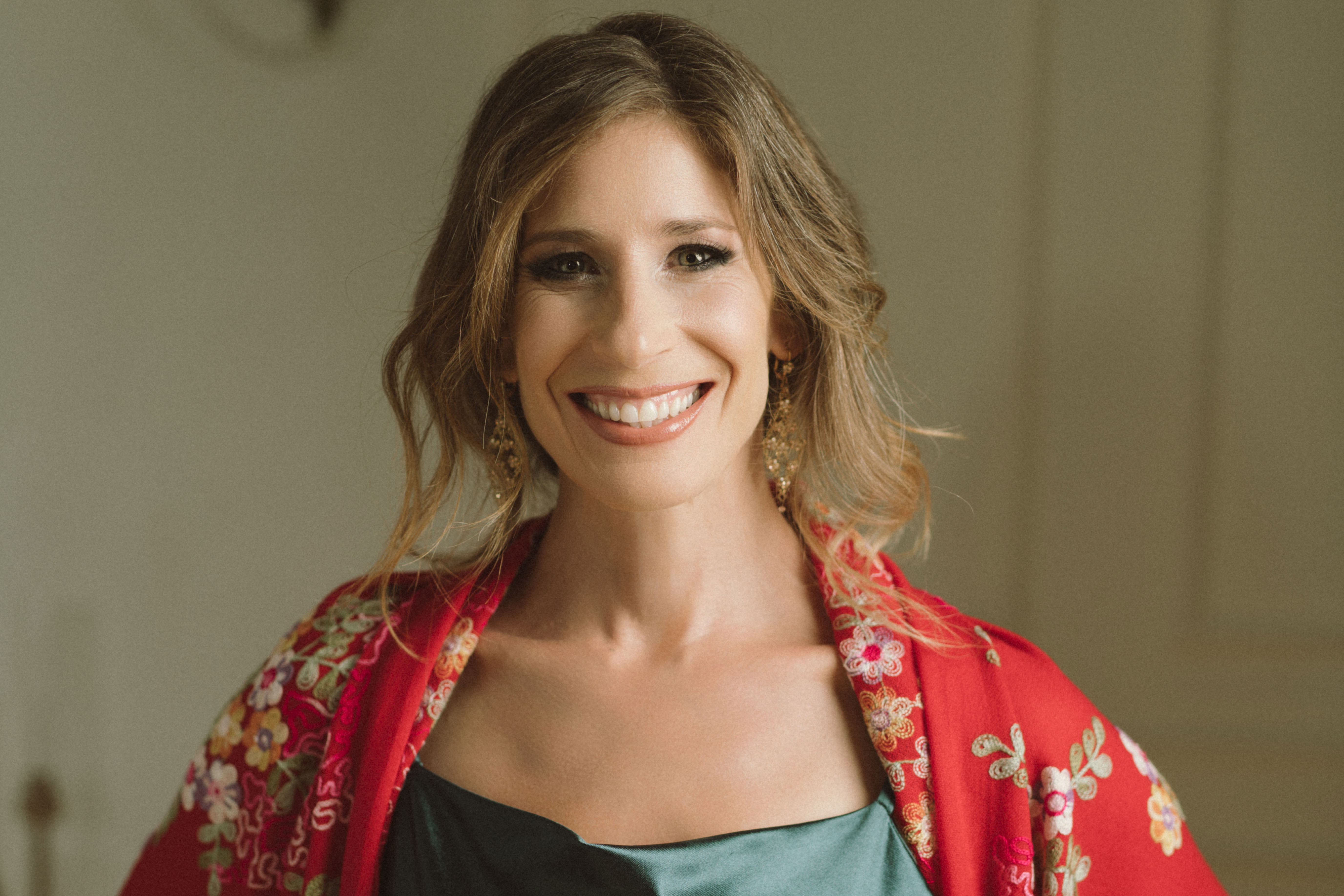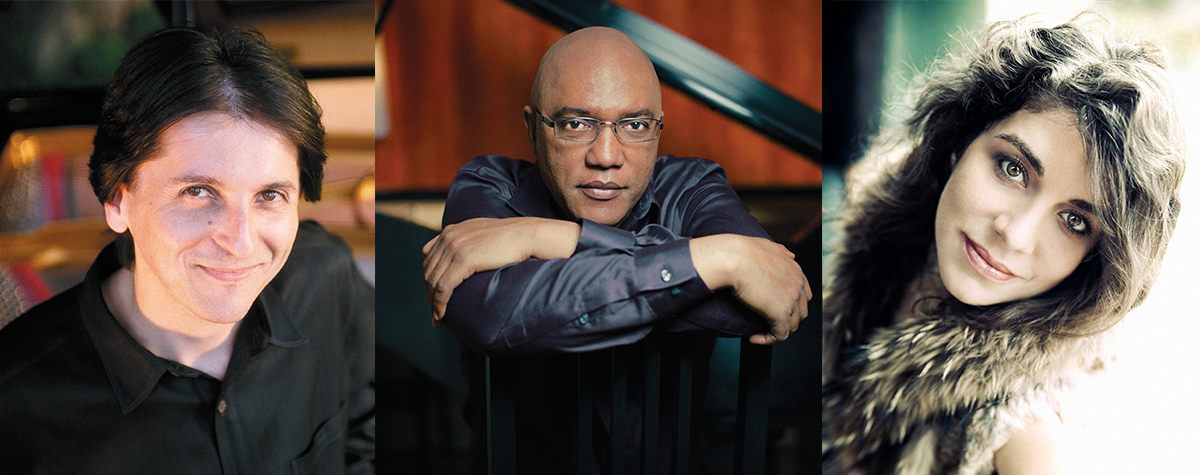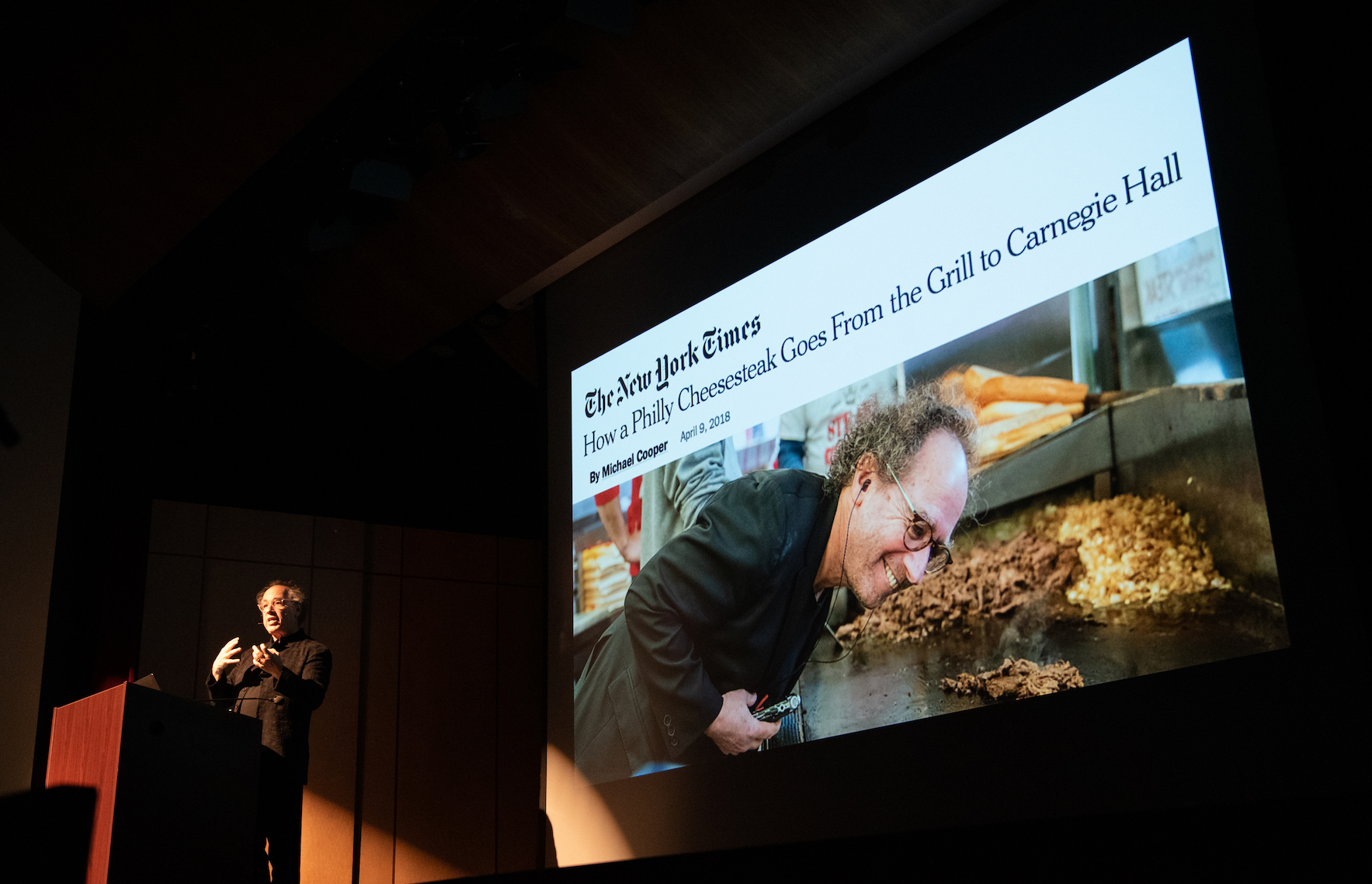UCLA Piano Marathon celebrates musical legacy of composer Arnold Schoenberg
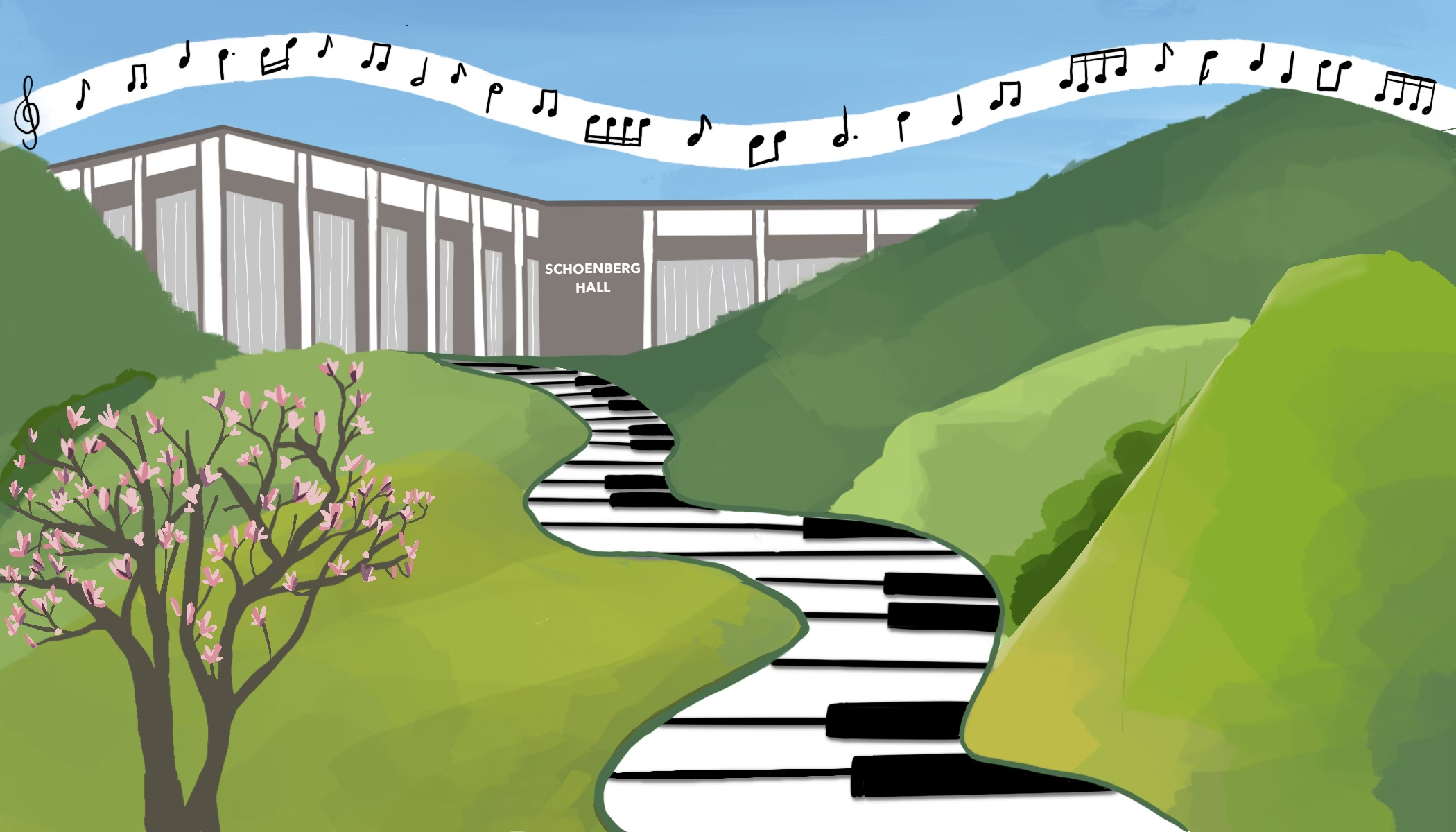
(Ella Liang/Daily Bruin)
“UCLA Piano Marathon – A Celebration of Arnold Schoenberg”
Lani Hall
March 14
6 p.m.
By Samantha Reavis
March 15, 2024 1:53 p.m.
This Thursday, piano and composition students will celebrate the musical legacy of avant-garde composer Arnold Schoenberg.
The concert, which is part of the ongoing celebration of the 150th anniversary of Schoenberg’s birth, will feature solo piano works by the famed composer, as well as original student compositions influenced by his music. The annual UCLA Piano Marathon has been running for more than a decade, said head of piano and music performance professor Inna Faliks, who has organized the event since she was hired at the Herb Alpert School of Music. Additionally, Schoenberg’s family will be in attendance, Faliks said. Every year Faliks and her colleague, assistant professor David Kaplan, choose a specialized theme for the concert that highlights a specific part of the large classical piano repertoire, she added. This piano marathon will consist of solo piano works by Schoenberg as well as original compositions by students, recent graduates and faculty, Faliks said.
“The piano has the biggest repertoire of any instrument – it’s endless,” Faliks said. “To give an audience an opportunity to enter a very specific area and emerge from it two, three hours later, having heard such a focused group of pieces, is quite magical.”
JP Hicks, a second-year music composition student, is one of the composers whose work will be featured in the piano marathon. Hicks said he and fellow composition students and faculty were asked to write a musical response to a selection of short piano pieces by Schoenberg. Hick’s compositional process involved becoming further acquainted with Schoenberg’s theoretical and creative approaches, while maintaining a modern sound, he said.
“It (piano) is one of the most unique and diverse instruments you can write for,” Hicks said. “It can be daunting to write for the piano, but I try not to think too much about it. I really wanted to pay as great an homage and respect to Schoenberg as I could.”
[Related: David and Mark Kaplan to honor families in music with The Da Camera Society]
Hick’s compositional output is inspired by Schoenberg in terms of tonality, he said. Even though Schoenberg’s music is often viewed as less accessible than other classical composers, Hicks said he is one of the most influential musicians of the Western classical tradition. Because of this, Hicks said he feels very honored to play a part in celebrating the late composer, and interacting with Schoenberg’s music through his response piece.
“It (this concert) puts me in direct correspondence with a big piece of history,” Hicks said.
Recent graduates of the School of Music also had the opportunity to participate in the piano marathon. Nick Carlozzi, who completed the doctoral program in music composition in 2022, will premiere his piece “Portrait,” based on Arnold Schoenberg’s self-portrait. The piece serves as a representation of Carlozzi’s current feelings, he said, while also portraying the composer’s interpretation of current world events.
Schoenberg, a Jewish refugee who immigrated to the United States to escape Nazi persecution, is oftentimes credited for modern composition’s move to atonality, which represented his struggles that were largely due to the antisemitism of the Holocaust, Faliks said. Schoenberg’s music lacks a traditional tonal center, or key. Schoenberg went on to create his own version of the 12-tone row, a method of organizing and arranging notes without using a traditional key signature, which gave his music structure even in the absence of traditional tonality, Faliks added. During the piano marathon, audience members are encouraged to listen to Schoenberg’s music with an open mind and without expectations, she said.
“His music is so incredibly emotional – the atonal music that he wrote mirrors, in a way, your subconscious. It mirrors human speech,” Faliks said. “You don’t know where it’s going to take you, and you have to be open to that. You have to enter into that world, letting it take you somewhere, not expecting that it’s going to take you somewhere obvious.”
[Related: Hilá Plitmann, UCLA music students debut original compositions at Schoenberg Hall]
Even though Carlozzi’s music is not directly inspired by Schoenberg, he still credits him with changing the musical landscape, Carlozzi said. The UCLA Piano Marathon, which is part of a wider musical celebration of Schoenberg’s 150th birthday, serves to create an artistic discourse between today’s composers and Schoenberg’s music, Faliks said. Because of the experimental nature of Schoenberg’s music, Faliks said this can be difficult for artists, but UCLA’s musicians have welcomed the challenge. The diverse group of student composers featured in the concert parallels the composers from a wide array of backgrounds taught by Schoenberg at UCLA long ago, Faliks added.
“I love playing Schoenberg, and I hope I do it with passion, and that is how I teach my students,” Faliks said. “Every moment of the music says something very special. It has a specific character. The composer is very specific about exactly what he wants in the sound, but it’s music that’s full of gesture, and it’s full of color and variety.”



